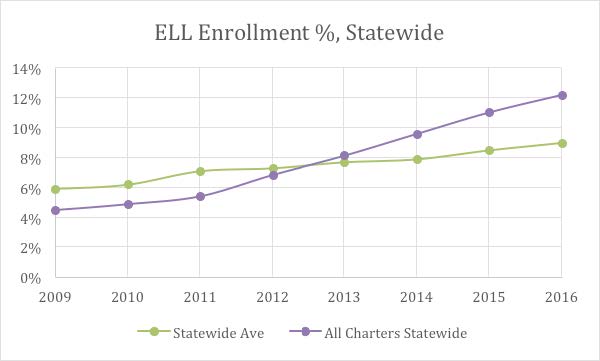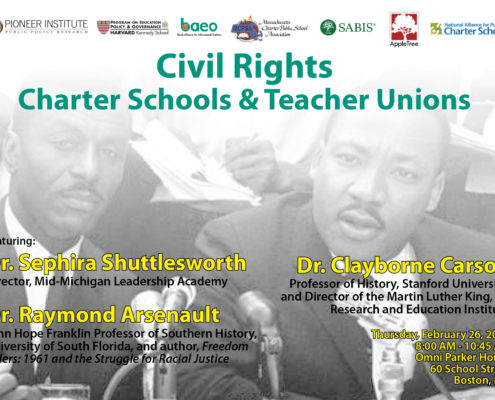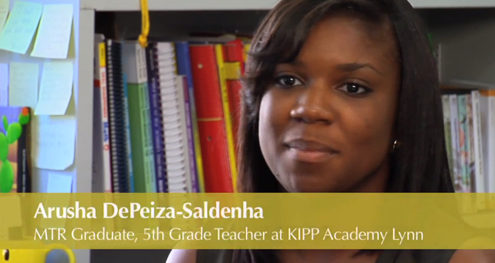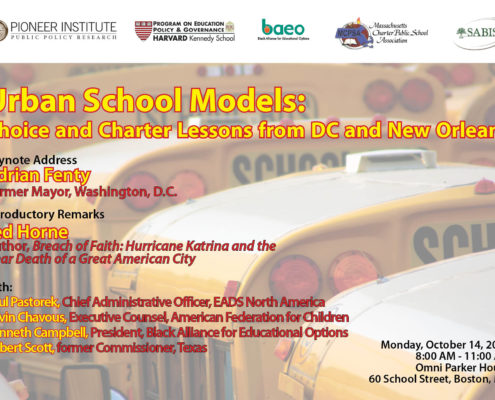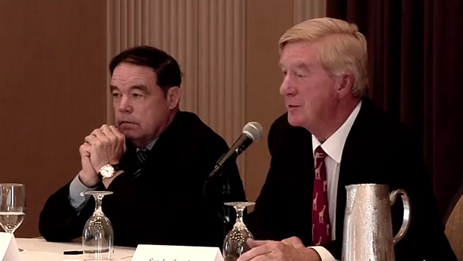Study: Massachusetts Charters Enrolling More English Language Learners
Charter ELLs have lower attrition rates, better academic outcomes than district counterparts
BOSTON – Massachusetts charter public schools are enrolling more English language learners (ELLs) in recent years, and those students have lower attrition rates and better academic outcomes than their district counterparts, according to a new study published by Pioneer Institute.
As late as 2009, ELL enrollment in Boston charter schools was just 2 percent. But a 2010 state law obligated school districts to share mailing lists with charters and required charter schools to submit detailed recruitment and retention plans for ELL students with the state Department of Elementary and Secondary Education (DESE).
“The mailing lists gave charters an effective means of recruiting English language learners,” said Dr. Cara Candal, who co-authored “Massachusetts Charter Public Schools: English Language Learners: Demographic and Achievement Trends,” with Professor Ken Ardon. “And the recruitment plans provide a way to hold charter schools accountable for enrolling more English language learners.”
By 2016, ELL enrollment in Boston charter schools jumped to 14 percent. In Gateway Cities like Lawrence, where charter ELL enrollment was already higher than in the surrounding district, that remained the case.
MIT researcher Elizabeth Setren found that by the spring of 2014, the percentage of ELLs entering Boston charter lotteries was similar to the district’s overall ELL enrollment. This suggests any remaining disparity is likely due to past enrollment patterns, and charter public schools are on a path to achieve parity with their district counterparts in the near future.
In terms of performance, 22 percent of Boston Public Schools (BPS) ELL students scored “Advanced” or “Proficient” on the 2014 MCAS, compared to 38 percent in the city’s charters.
Setren’s 2015 study compared students who entered charter school lotteries but were not selected to students who were admitted, to test claims that charters’ success was due to attracting higher-performing students. Even with these controls, she found that ELL students in charter schools outperform their peers academically.
Setren concludes that there is no strong evidence that charter middle and high school students’ performance could be attributed to differences in background or motivation. This “selection bias” was more significant at the elementary school level, but “unlikely to explain elementary school exam results.”
Studies also find that ELL students are similarly mobile in district and charter schools, which means that student attrition does not explain charters’ results. Moreover, the rate of Boston charter students transitioning out of ELL status after one year is three times the rate at BPS.
In addition to the data, anecdotal evidence and interviews lead Candal and Ardon to suggest that frequent use of formative assessments to diagnose student needs and drive instruction, and the development of specific teacher induction programs and ongoing professional development targeted at student needs, may be among the factors responsible for charter schools’ success with ELLs.
About the Authors:
Cara Stillings Candal is an education researcher and writer. She is a senior consultant for research and curriculum at the National Academy of Advanced Teacher Education and a senior fellow at Pioneer Institute. She was formerly research assistant professor and lecturer at the Boston University School of Education. Candal holds a B.A. in English literature from Indiana University at Bloomington, an M.A. in social science from the University of Chicago, and a doctorate in education policy from Boston University.
Ken Ardon received a Ph.D. in economics from the University of California at Santa Barbara in 1999, where he co-authored a book on school spending and student achievement. He taught economics at Pomona College before moving to Massachusetts, and from 2000 to 2004, Dr. Ardon worked for the Commonwealth of Massachusetts in the Executive Office of Administration and Finance. He is a professor of economics at Salem State University, where he has taught since 2004. Dr. Ardon is a member of Pioneer Institute’s Center for School Reform Advisory Board.
About Pioneer:
Pioneer Institute is an independent, non-partisan, privately funded research organization that seeks to improve the quality of life in Massachusetts through civic discourse and intellectually rigorous, data-driven public policy solutions based on free market principles, individual liberty and responsibility, and the ideal of effective, limited and accountable government.
Get Updates on Our Charter Schools Initiative
Related Research


